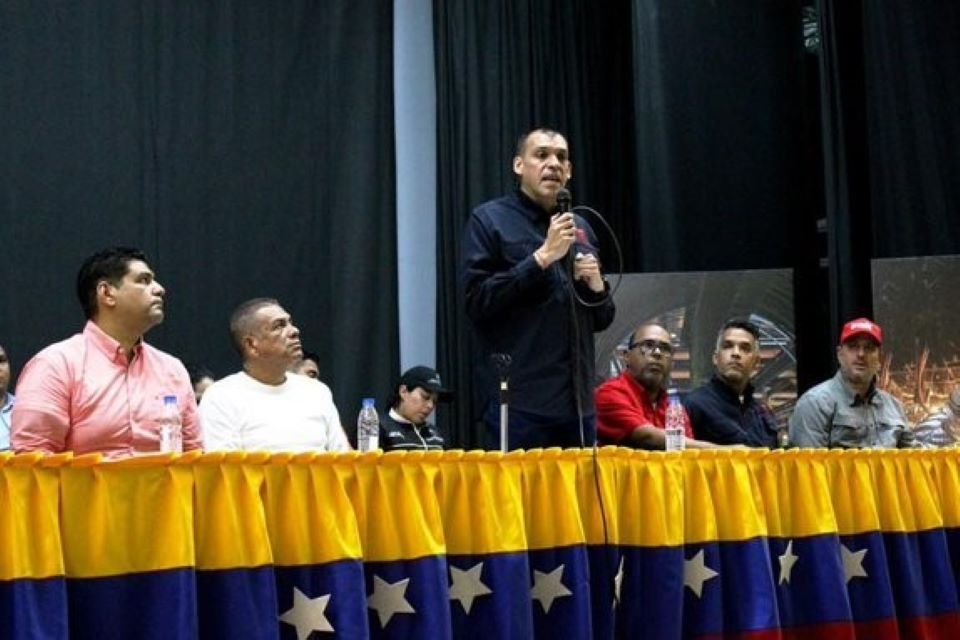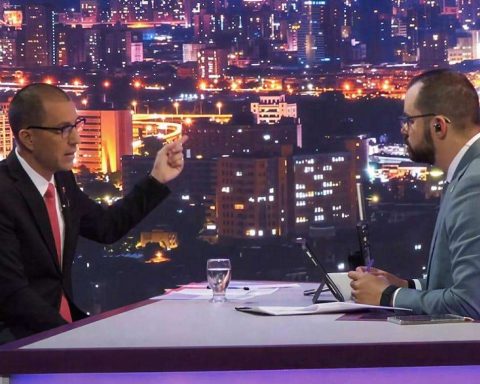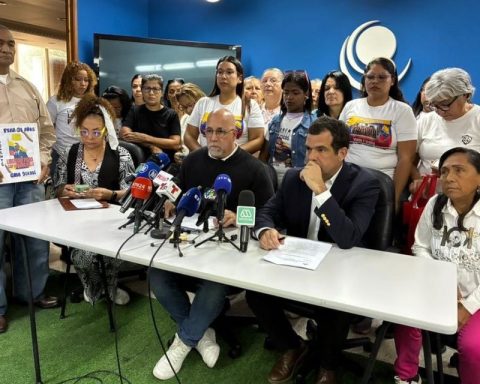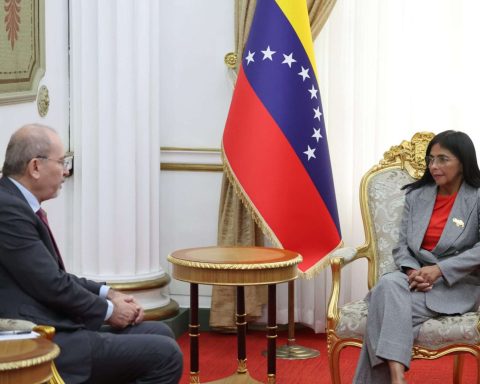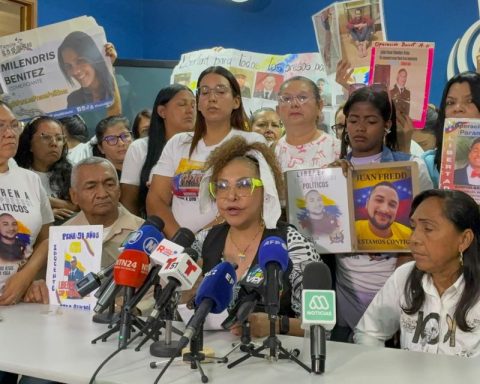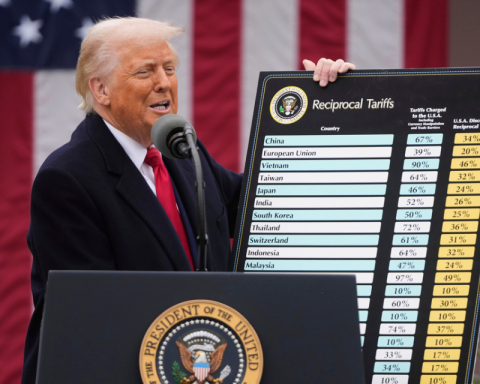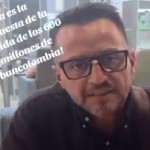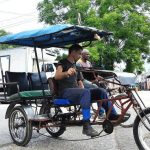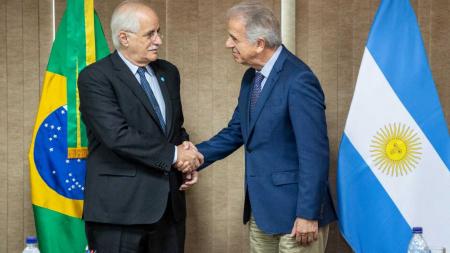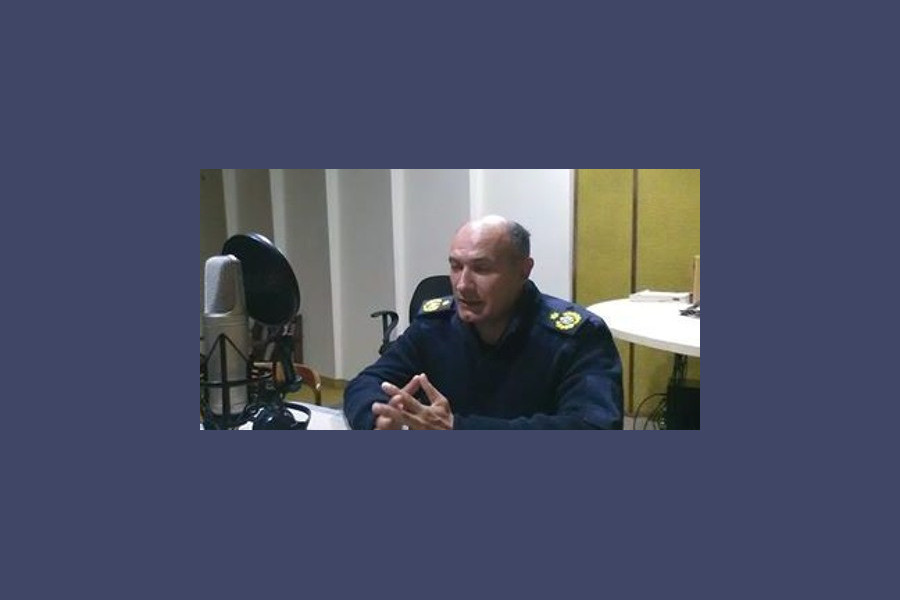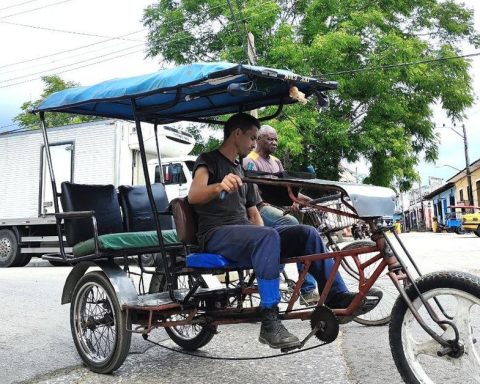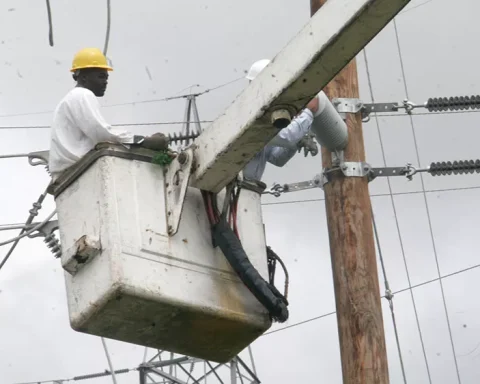The Minister of Industries and National Production Hipólito Abreu and the regional authorities of the basic companies, swore in five working groups to solve the labor crisis in Guayana. Interviewed workers affirm that they do not feel represented by these instances, pointing out that those who make them up are people affected by the government of Nicolás Maduro and that the instances where the protesting workers participated no longer exist.
In order to respond to the conciliatory statement sent to the Ministry of Labor by the Bolivarian Socialist Central of Workers (CBST), one of the seven in the country, the Minister of Industries and National Production, Hipolito Abreuand the regional authorities of basic companies, sworeon Tuesday, February 28, five work tables to solve the labor crisis in Guyana.
After a turbulent month of January due to protests over the wage problem and the poor quality of life of the workers of the former industrial emporium of Guayana, the authorities of the Venezuelan Corporation of Guayana (CVG) finally decided to set up work groups, assisted by the Ministry of the Social Process of Work, to find a response to the demands of the workers.
In interview with Caroní Mailthe president of the Bolivarian Socialist Central of Workers, Pedro Perales, refuted that the central has been “asleep” in recent years and asserted that these tables will give quick results, specifically, during the month of March, when some improvement is expected with respect to to the wage claim.
Regarding this situation, Perales reported in a radio interview that this March 3, at the facilities of the Siderúrgica del Orinoco (Sidor) there will be the presence of President Nicolás Maduro, who would come to offer answers to the “working class”.
*Read also: Oscar Figuera: “What the government is incubating is a protest of immense magnitude”
«We are going to deploy it in all companies. Each company will have the opportunity to discuss at these tables in order to develop a primary report to deliver this document to Minister Hipólito Abreu. There we will have the proposals regarding the reinsertion of workers, recovery of productive areas and food response for all workers,” said Perales, who recognized the problem of employees outside the plant and the violation of labor rights, among others. situations involving workers.
Up to now it is known that five tables were sworn in that will address different issues, specifically: defense and production of the CVG’s operation; worker planning for social welfare, productive efficiency, worker control and productive strengthening.
—How will the participation of the workers be?
—All the workers of the companies will be able to participate in the tables. In the first phase, those who have already submitted proposals will be considered. The first installation phase will be in Alcasa, Sidor, Venalum, Bauxilum and Ferrominera.
Will those workers who participated in the protest at Sidor Gate IV be included?
-Clear. It is an open discussion. These tables will look for proposals to find out what corresponds to the workers. It will be a permanent discussion according to the needs of the workers.
Perales asserted that these tables will be supported by all the national authorities, as well as the authorities of the CVG. Regarding the complaints of the workers who protested during the month of January at Sidor’s gate IV, who claim to have been deactivated and intimidated, Perales invited them to approach the plant and share their case, alleging that they reject these actions.
“We must eliminate any harassment against workers. These colleagues must be sure that this body is to respond to the workers. You can approach, we are not closed. There are no political tendencies here. The only condition is to come to build, not to destroy. It is not to block the government without having started to play. We want to advance in the recovery of production,” said Pedro Perales.
CBST: distrust and lack of participation of other labor bodies
Despite the fact that there are seven labor centrals in the country, the reality is that the Bolivarian Socialist Central of Workers, whose members are publicly supportive of the government, has a preponderance in decision-making in Guayana, at least so the workers affirm.
The workers of the different companies of the Venezuelan Corporation of Guayana assured that they did not feel represented by the authorities of the body and, in addition, they point to Pedro Perales as one of the signatories of the memo 2792in 2018, which eradicated the labor benefits raised in collective bargaining.
In this regard, Perales refuted these statements, alleging that “in 2018 this agreement was signed to advance recovery, we supported it to give an answer to the people because we were heading towards civil war, the country was in a delicate situation as a result of the blockade.”
It should be noted that 2018 was a year of high labor unrest, due to the cessation of union elections, the implementation of measures to which the Government refers to as “unilateral coercive measures”, of intimidation against labor protests and imprisonment of unionists. In turn, the signing of 2792 gave “permission” to the companies to stop fulfilling the commitments stipulated in the collective agreements.
Regarding the entire situation, the workers insist that they are surprised at how the institutions have given an immediate response to the plant, while during 2022 they delivered more than 22 demands to the CVG and different official institutions to make the labor crisis visible.
«The lists of requests have a procedure to be introduced, since after this list is introduced, if there is no agreement: a strike can be started. In Venezuela, for more than 15 years the Ministry of Labor has not granted a strike permit to anyone. No union or central, this violating the right to strike that is constitutional. What they did does not meet the requirements, because a trade union center cannot assume the representativeness of the unions that are not affiliated to it. Here, for example, there is the Federation of Workers of Bolívar: this is illegal”, questioned Alejandro Álvarez, general secretary of the Union of Workers of the National Steel Industry (Sidernat).
The workers insist that they are surprised at how the institutions have given an immediate response to the plant, while during 2022 they delivered more than 22 demands to the CVG and different official institutions to make the labor crisis visible.
“We do not feel represented by trade unionists who act attached to the interests of the State, violating the rights of workers and completely ignoring the Labor Law,” Álvarez reiterated.
Likewise, workers assured that the plant did not consult prior with the base workers to prepare the conciliatory statement, a situation that was evidenced the day it was delivered, when there was no presence of any of the protesting workers at the headquarters of the Venezuelan Corporation from Guyana.
César Marcano, a Ferrominera Orinoco worker, who actively participated in the January protests, and was part of the dialogue tables with grassroots workers assisted by the Government, declared that the workers do not feel represented by said table, reiterating that it was these same leaders who endorsed 2792.
“First, in January a table was genuinely set up, which they moved. Subsequently they formed a table that they called national that is not made up of base workers, but workers from the productive councils and trade unionists that we all know. We have no expectations with those five tables that they made up. We don’t feel represented,” he said.
Regarding the situation reported, during the month of January, after a massive five-day protest at the Siderúrgica del Orinoco, the Bolívar Governor’s Office set up working groups with the protesters. However, breaching his commitment To give continuity to this dynamic, Governor Ángel Marcano (PSUV) finally decided to talk with those who he described as “the real leaders«.
Consequently, the instances where the workers who have been demonstrating since the beginning of the year participated, no longer exist, being replaced by these tables that only workers affiliated with the government attend.
Post Views: 23
